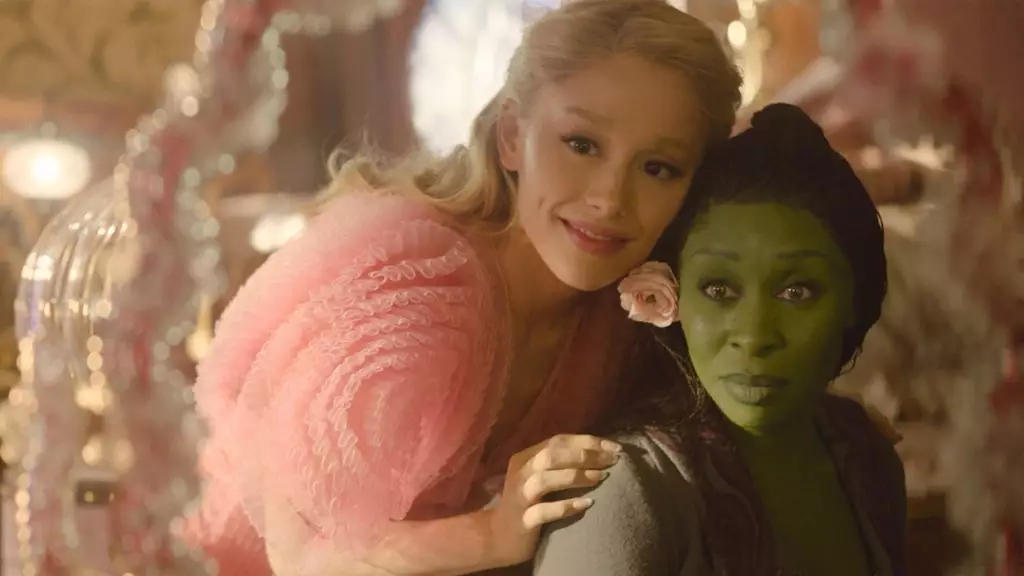The world of toys and collectibles often walks a fine line, balancing nostalgia, creativity, and responsible marketing. However, the misstep recently made by Mattel regarding their Wicked collection dolls has uncovered a potential pitfall in this balancing act. What should have been an enchanting range of dolls inspired by the much-anticipated film adaptation of Wicked, has instead become a subject of controversy and concern.
Mattel, in its official statement released after the blunder gained traction on social media, acknowledged a significant error concerning the packaging of their Wicked-themed dolls that feature characters inspired by the film’s stars, Cynthia Erivo and Ariana Grande. Instead of directing potential buyers to the movie’s official site, WickedMovie.com, the packaging mistakenly includes a link that directs users to a pornographic site. Specifically, it leads to Wicked Pictures, a company known for its adult films, which presents ethical dilemmas for a product aimed primarily at children.
The involved parties include an unfortunate typo and a series of oversights that have resulted in widespread ridicule and a tarnished reputation for the iconic toy brand. Social media users were the first to highlight the issue, expressing their disbelief and concern over how a reputable company could allow such a mistake to reach consumers. The incident does raise an essential question: How would a widespread and evident error make it through various stages of review and approval without detection?
The immediate fallout from the misprint has not only included significant backlash against Mattel but has also spurred conversations around corporate accountability and consumer safety. Parents—who are typically the primary purchasers of these toys—have expressed their outrage. Many have taken to platforms like Reddit and Twitter to share their opinions, which have ranged from humorous quips about the error to serious concerns about the implications of the mistake. The potential for children to inadvertently access inappropriate content through a toy produced by a well-known and trusted brand has left many feeling uneasy.
Mattel’s response has certainly been commendable in terms of damage control; they advised consumers to either discard the faulty packaging or obscure the link altogether. Additionally, they have promised corrective measures to prevent similar blunders in the future. Yet, this incident uncovers a more profound concern about the requirements of significant corporations to uphold a commitment to consumer safety, especially when their target demographic is children.
In the context of marketing and distributing children’s products, this incident underscores a broader necessity for heightened scrutiny and attention to detail in packaging and advertising. Copy editors, as Mattel’s statement amusingly pointed out, are essential in preventing such errors from occurring. However, it’s not only about additional personnel; it implicates an entire cultural and procedural shift within companies like Mattel.
This event serves as a wake-up call, not just for Mattel but for all brands that cater to children. The integration of rigorous proofing stages, kid safety standards, and transparent communication from all departments involved in product development can help safeguard against such errors.
Furthermore, companies must also foster an environment of accountability where errors can be reported and rectified without punitive consequences. Given the competitive nature of the toy industry, it’s essential that businesses prioritize ethical sales practices and uphold consumer trust as a core tenet.
As the release of the Wicked film approaches, fans and consumers will undoubtedly keep a close watch on how Mattel navigates the repercussions of this PR debacle. It will be a test of the company’s integrity to restore faith in their brand while delivering quality products that enchant rather than confuse. Ultimately, this serves as a potent reminder of how even the smallest blunders can lead to significant consequences in the world of branding and consumer trust. Moving forward, a focus on diligence and accountability will ensure that enchantment remains at the forefront of children’s toys—not confusion.


Leave a Reply